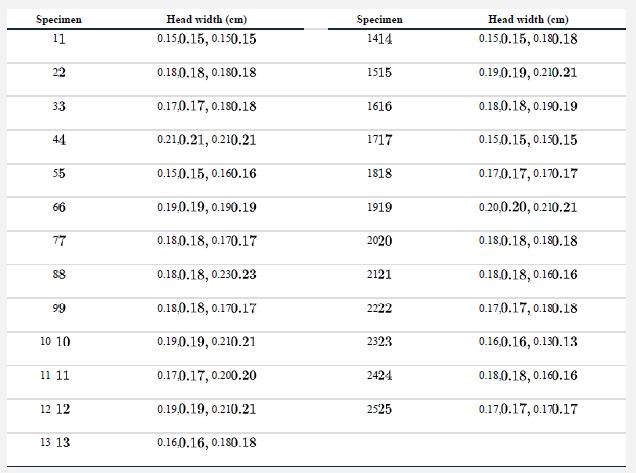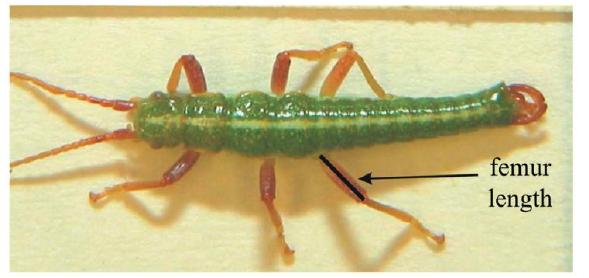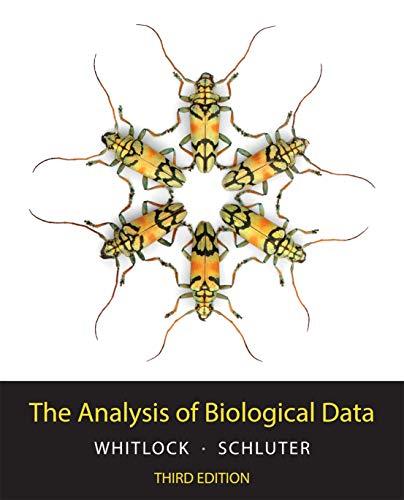Head width was measured twice, in centimeters, on the random sample of 25 walking-stick insects described in
Question:
Head width was measured twice, in centimeters, on the random sample of 25 walking-stick insects described in Example 15.6. The data are as follows:

a. Use ANOVA calculations to estimate the variance within groups for head width.
b. Calculate the estimate of the variance among groups.
c. What is the repeatability of the head-width measurements?
d. Compare your result in part (c) with that for femur length analyzed in Example 15.6. Which trait has higher repeatability? Which trait is more affected by measurement error?
Data from example 15.6

The walking stick Timema cristinae is a wingless herbivorous insect that lives on plants in chaparral habitats of California. In a study of the insect’s adaptations to different plant species, Nosil and Crespi (2006) measured a variety of traits using digital photographs of specimens collected from a study site in California. They used a computer to measure various traits on the photographs. Because the researchers were concerned about measurement error, they took two separate photographs of each specimen. After taking the first photo, they returned the insect to storage and then retrieved it again for the second photograph. After measuring traits on one set of photographs, they repeated the measurements on the second set. Very often the result was different the second time around, indicating measurement error. How large was the measurement error compared with real variation among individuals in the trait? Figure 15.6-1 illustrates the two measurements of femur length made on 25 specimens. The data are listed in Table 15.6-1.
![Femur length (cm) 0.35 0.30 0.25 0.20 0.15 ****]**+-+:[/21+][[ Individual walking sticks](https://dsd5zvtm8ll6.cloudfront.net/images/question_images/1702/9/8/1/11765816dfd7bf9c1702981116972.jpg)
Step by Step Answer:

The Analysis Of Biological Data
ISBN: 9781319226237
3rd Edition
Authors: Michael C. Whitlock, Dolph Schluter





